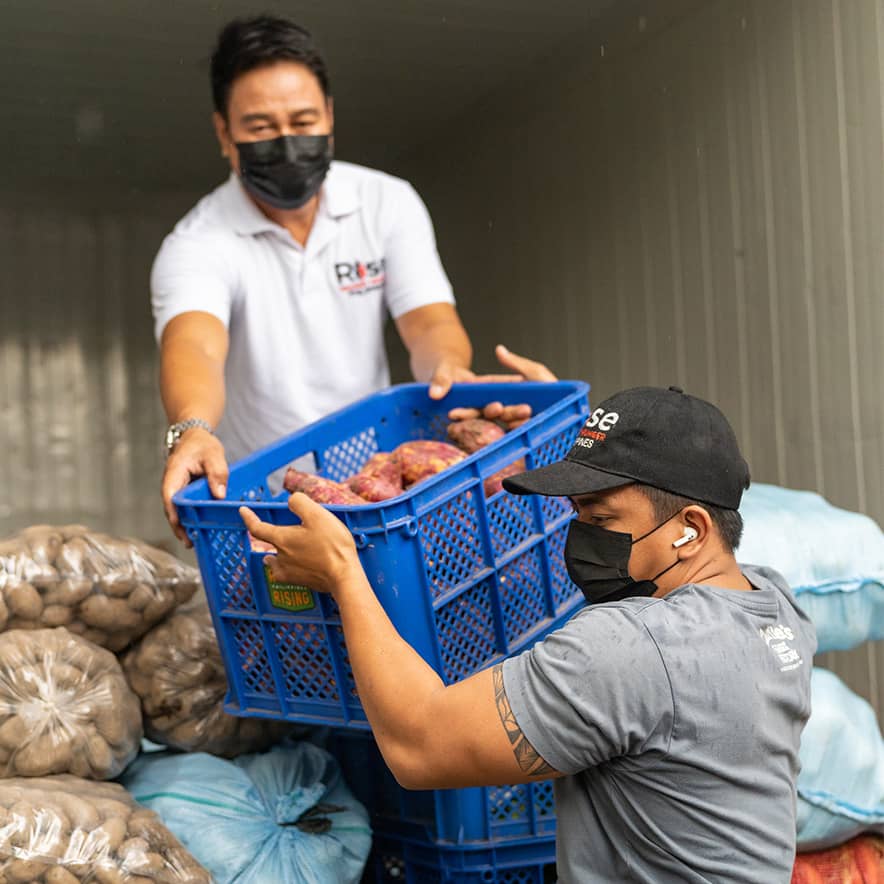FLPC and Partner Launch the Global Food Donation Policy Atlas Website and Research Comparing Food Donation Policies Across 5 Countries

The Harvard Law School Food Law and Policy Clinic (FLPC) is excited to announce the launch of our first-of-its-kind interactive resource that uses groundbreaking research to inspire long-term solutions to food waste, hunger, and climate change: the Global Food Donation Policy Atlas. In partnership with the Global FoodBanking Network (GFN), and with the support of the Walmart Foundation (WF), Harvard researchers map the laws and policies affecting food donation in 15 countries and provide a set of findings and recommendations to prevent unnecessary waste of food and improve food distribution to those in need.
According to the United Nations, more than enough food is produced to feed every person in the world, yet an estimated 821 million people globally suffer from hunger. In just a few months, as a result of the coronavirus pandemic, that number could more than double. While millions of people go without adequate food, one-third of all food produced for human consumption is lost or wasted. There has long been a need for countries to bridge the gap between surplus food and the growing need for food donation; the pandemic has profoundly exacerbated that need. The Global Food Donation Policy Atlas findings, as well as an online comparative tool, are being released now to help countries advance this effort.
Since the release of The Dating Game in 2013, which exposed how much food waste is related to misleading date labels, FLPC has been at the forefront of policy research on reducing food waste in the United States and we are excited to expand our footprint to different countries. Over the years, we have worked actively with federal policymakers as well as stakeholders in over a dozen states to provide technical assistance on food waste and food donation laws and policy changes. As a result of our report Opportunities to Reduce Food Waste in the 2018 Farm Bill, the 2018 Farm Bill included 9 new programs on food waste, 7 of which were recommended in FLPC’s report. We also collaborate with advocates in a number of states to review and support legislation that reduces food waste and increases food recovery. For example, FLPC worked with advocates in California to support legislation to standardize date labels and expand liability protections. Both bills were signed into law in October 2017. After building knowledge about these laws in the United States, FLPC launched the Atlas to understand national laws relating to food donation, compare laws across countries and regions, learn about food donation barriers, and share best practices and recommendations that can apply in the US and elsewhere.
Because food is heavily regulated, and food safety laws can pose barriers to the creation of food donation programs in many countries, redirecting safe, surplus food can be difficult and complicated. Not knowing what safety rules apply to donations, or being forced to bear a tax burden for donated food, can pose insurmountable barriers to donation.
Around the world, communities are actively implementing and advocating for policy reforms to help move safe, surplus food into the hands of those who need it. The Atlas contributes to these efforts by providing research to help make sense of laws relating to food donation, compare food-donation laws across countries and regions, analyze food donation barriers, and share best practices and recommendations for policy improvements.
“It’s more important than ever for policymakers, food donors, retailers, food companies, food banks, intergovernmental agencies, and the public to understand the impact that food loss and waste has in their countries and how most of this is unnecessary. The Global Food Donation Policy Atlas is the first research study to identify food donation policies and best practices across the world because we need a global perspective to address this complex issue.”
Emily Broad LeibThe Atlas project looks at six main barriers to food donation and food recovery: food safety, date labeling, liability, taxes and tax incentives, government grants or funding programs, and food waste penalties and donation requirements. Through a combination of research and on-the-ground field work with food bank staff, food industry professionals, government officials, and food recovery organizations, FLPC researchers developed accessible country-specific legal guides and policy recommendations to apply best practices and long-term solutions.
The Atlas website features Legal Guides that identify and explain the legal frameworks and issues most relevant to food donation in Argentina, Canada, India, Mexico, and the United States. It also provides Policy Recommendations for strengthening these frameworks and effectively promoting food donation in the aforementioned countries.
The website also features an interactive atlas tool that enables users to compare food donation policies among these initial five countries. In the coming year, FLPC and GFN will continue to add resources to the website, including Legal Guides and Recommendations for Chile, Colombia, Costa Rica, Dominican Republic, France, Guatemala, Peru, Singapore, South Africa, and the United Kingdom.
Lastly, because the COVID-19 crisis has illuminated so clearly the challenges in our food system and the vital role of food banks and food donation, the Atlas website includes a new issue brief by FLPC on how governments can effectively promote food donation during the global pandemic. While the global pandemic has uprooted business as usual and created new pressures on the food system writ large, we believe it is important to remind governments of the need to support food donation operations, both during emergency and non-emergency situations.
The legal guides and recommendations, issue briefs, executive summaries and interactive map to compare food donation laws and policies across countries are available here.